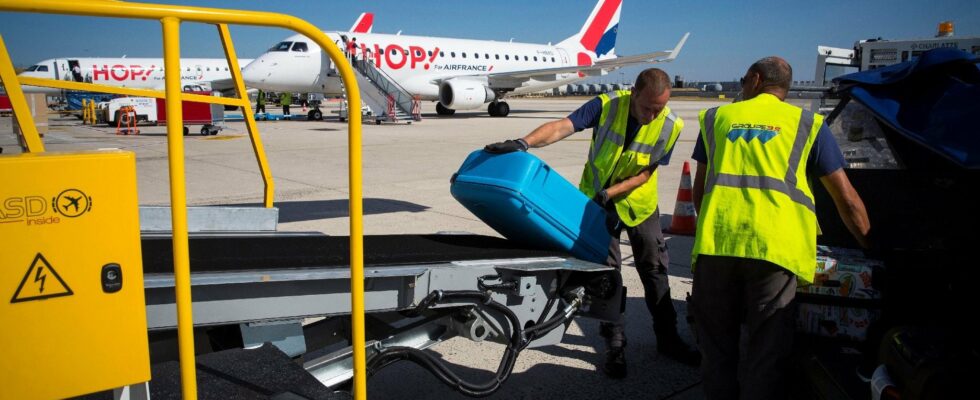The Covid-19 epidemic has not disappeared but the health crisis seems to be in the rearview mirror of the aviation sector. The International Air Transport Association (Iata) now expects to transport 4.96 billion people this year, she announced this Monday, June 3 during its general meeting in Dubai, United Arab Emirates.
The organization has so far forecast 4.7 billion air travelers in 2024. This is a figure higher than 2019, before the pandemic, a record year marked by a number of 4.54 billion travelers transported.
The International Air Transport Association, which brings together 320 airlines representing 83% of global traffic, has also revised its economic projections upwards, now expecting 30.5 billion dollars in cumulative profits for its carriers around the world, against 25, 7 billion so far mentioned. Iata also estimates that in 2023 airlines will have earned $27.4 billion, compared to $23.3 billion mentioned in its previous projections last December. The health crisis had plunged the airline sector into abysmal losses. Iata valued them at $183 billion between 2020 and 2022. The expected results for 2024 represent “a huge success given the recent serious losses due to the pandemic,” noted Iata Director General Willie Walsh .
Air transport is also expected to break revenue records this year, at $996 billion, Iata estimated. She had so far mentioned 964 billion for 2024, already well above the 838 billion for 2019. Willie Walsh noticed that these figures should not obscure profitability which remains relatively low: 3% net margin in 2024. “This is unfortunately not a record, but it represents a great success considering where we were a few years ago,” he said on this subject. But “at only $6.14 per passenger, our profits are very low, it’s barely enough for a cafe in many parts of the world,” argued Willie Walsh.
“Zero net emissions” of CO2 by 2050
Air freight turnover, which exploded to $210 billion in 2021, will drop to $120 billion this year, after $138 billion in 2023. But it will still be more than the $101 billion in 2019, before the crisis which has disrupted logistics chains, Iata predicted this Monday.
Airline costs are also expected to break records this year, at $936 billion, according to the organization. This will be fueled in particular by a fuel bill of 291 billion, or 31% of operational costs, based on a barrel of kerosene at $113.8. “It is very important that we achieve sustainable profitability. This will allow companies to fully invest in the products our customers want, and the means to achieve net zero CO2 emissions in 2050”, a flagship commitment of the aviation sector , added Willie Walsh. Air transport currently emits less than 3% of global CO2, but is singled out because only a small minority of the world’s population uses it. Its effects on global warming are probably greater because it also produces nitrogen oxides and condensation trails.
To achieve “zero net emissions” of CO2 by 2050, Iata is banking 65% on fuels of non-fossil origin (sustainable aviation fuels, SAF in English), the balance of the reductions being obtained by new technologies, including hydrogen aircraft, optimization of operations on the ground and in the air, as well as carbon offsets. But SAF, despite an expected tripling of production this year compared to 2023, will still represent only 0.53% of total global commercial air transport fuel consumption in 2024, according to Iata.
